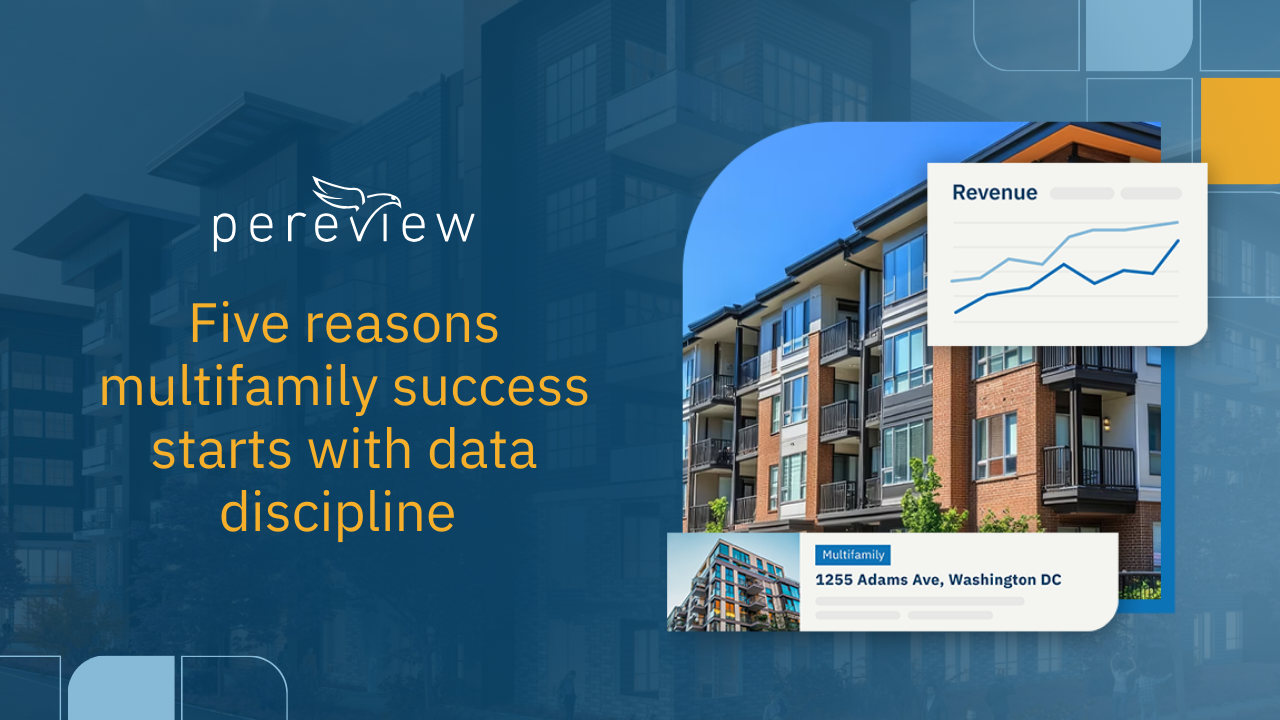The pace of decision-making in multifamily isn’t slowing down. It’s accelerating, and investor expectations are only going up. Owners, operators, and managers are being asked to deliver more performance with more transparency across increasingly complex portfolios. Meeting that demand comes down to one thing: data discipline.
So what do we mean by data discipline? It’s not just “having data.” It’s the consistent capture, standardization, and reporting of the numbers that actually matter. Done right, it gives everyone – from the property manager to the LP – a single, accurate read on performance. Without it, you’re left with stale numbers, rent rolls that don’t tie out, and fragmented reports that make it hard to see what’s really happening.
Here are five reasons why data discipline is central to multifamily performance:
1. Consistent rent roll tracking prevents blind spots
Rent rolls are the foundation of multifamily operations. If they’re inconsistent, you can’t trust your numbers. Data discipline ensures every lease, renewal, and vacancy is captured the same way across the portfolio – no missed concessions, no missed escalations, no surprises in NOI.
2. Standardization reduces errors and makes comparisons possible
Most portfolios span multiple markets and property managers, often running on different systems. Without a common framework, comparing performance is apples to oranges. Standardization takes the noise out of reporting, so results are accurate, repeatable, and easy to stack up side by side. It also cuts down on the time wasted chasing errors and reconciling spreadsheets.
3. Benchmarking only works with clean, reliable data
Whether you’re looking at lease trade-outs against submarket rent growth or occupancy against regional peers, benchmarking is only as good as the inputs. Disciplined processes make sure your internal reporting lines up with external data, giving a clear, apples-to-apples picture of relative performance.
4. Balancing rent growth with retention requires precision
Rent growth drives returns, but if it pushes renewals too high, turnover can eat away the upside. With clean, consistent reporting, managers can see where they’re winning renewals, where they’re losing tenants, and how trade-outs are trending. That accuracy helps strike the right balance between maximizing rent and keeping stable occupancy.
5. Transparency builds investor confidence
Investors are asking tougher questions and want answers faster. If you can deliver consistent, reliable numbers, you demonstrate control over the portfolio and build trust. If your reporting is late, inconsistent, or incomplete, it raises questions. In a competitive capital environment, disciplined data practices separate managers who can back up their story from those who can’t.
Why data discipline really matters
Multifamily performance isn’t just occupancy and NOI anymore. It’s how quickly and confidently you can measure what’s happening in the portfolio and show it to investors. Firms with data discipline move faster, benchmark more accurately, and give stakeholders the transparency they expect. In today’s market, that discipline isn’t optional – it’s the difference between reacting late and staying ahead.



